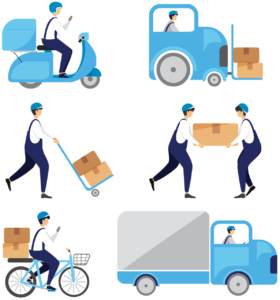The Thing that’s Truly Driving Tech
 Silicon Valley is on the ballot this year – in its home state, no less.
Silicon Valley is on the ballot this year – in its home state, no less.
California’s Proposition 22 is up for a vote November 3, where AB (Assembly Bill) 5, the state’s gig worker law that, among other things, forced Uber and Lyft to classify their drivers as employees, passed in September of 2019. Prop 22 aims to exempt ridesharing and food-delivery firms from AB5.
Said The New York Times, “Prop 22 would exempt the companies from complying with (AB5), while offering limited benefits to drivers. The law is intended to force them to treat gig workers as employees, but Uber and its peers have resisted, fearing that the cost of benefits like unemployment insurance and health care could tip them into a downward financial spiral.
“Though Uber and Lyft, for example, are publicly traded companies with a combined worth of $70.5 billion, they have never been profitable. They lose billions of dollars each year, and the pandemic has made turning a profit even more difficult,”
“AB5 impacted not just ride-sharing drivers but independent contractors across the news, trucking, and other sectors, and some pushed back on it,” Business Insider reported. “Freelance journalists, for example, claimed their careers would suffer since AB5 capped the number of submissions they could send to editors at 35 per outlet. Subsequent amendments have been made since then, including one that is currently in the works, AB 1850, that would exempt news professionals.”
Considering all of the other freelance and gig workers who are impacted by AB5 and the pushback to date, was the legislation ill-conceived, or is Prop 22 once again the tech industry exempting themselves from an admittedly onerous regulation (especially to the gig/freelance economy) in lieu of, well, developing a workable business model?
And there is a difference in the case of freelance journalists as opposed to these specific gig economy workers.
Just as Facebook, Twitter et al have their Section 230 – and we’ve seen where that has led -, now the app economy wants theirs, and isn’t that how Uber/Travis Kalanick justified the company’s ability to fall outside the purview of being regulated as a taxi/limousine service initially, after all?
Also worthy of note is that while neither Uber nor Lyft is profitable, their combined worth is $70+ billion. That’s techonomics for you.
But neither were Google or Facebook, for quite some time. Until data collection/privacy infringement/surveillance became the business model du jour. Give them time – the gig economy companies are collecting data as well. Uber and Lyft will sort that part out, too, as did the uberlords before them. Speaking of which, this just in: Uber plans Q4 OOH ad network expansion to Chicago and Los Angeles. Adverts. The old Silicon Valley fallback.
Their support for the legislation is also straight out of the tech playbook: get a free pass, use it to your advantage and to suppress the competition, in some form or another. Wasn’t Google just recently brought up on anti-trust charges (Justice Department Files Antitrust Lawsuit Against Google)? And didn’t Amazon get a break from the USPS on its packages? Said WealthDaily, “according to analysis by Citigroup, the U.S. Postal Service is charging the retail giant below-average rates for the packages it delivers. In fact, the USPS would have to raise rates by about 50% just to break even on its costs. And while that may sound like a good thing — for people shipping products sold through Amazon, at least — it’s actually the latest way Jeff Bezos is enforcing his growing monopoly…”
Amazon now has its own delivery mechanisms in place, yet the Observer noted that “matching the cost level of USPS has been a challenge. Since hiring its own shipping staff, the e-commerce giant has frequently faced criticism for underpaying workers, putting them in subpar working conditions and not providing standard healthcare benefits.’
While much attention is given to the tech sector’s diversity problem, not much at all is given to its glaringly obvious entitlement problem and the disenfranchising of – especially in the case of Uber, Lyft, DoorDash, et al – the underlying industry drivers: the drivers.
Tech has a way of couching their needs/desires behind the purest or noblest of intentions, but more often than not, they’re simply once again taking you for a ride.
Onward and forward.